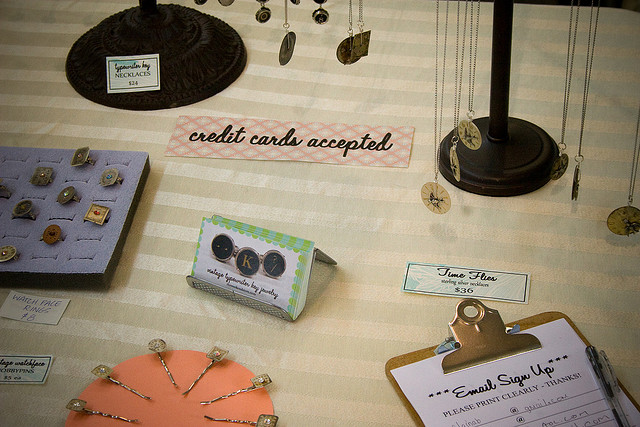This guest post was written by Jason Bushey. Jason runs the day to day operations at Creditnet.com.
If you’re struggling through poor credit, one of the best ways you can begin improving on your credit score is by applying for a bad credit credit card.
There are a lot of reasons that applying to a new card will give your credit score a modest boost.
A new credit account is an automatic plus in the eyes of lenders, and makes up 10% of your FICO score according to FICO creators Fair Isaac. But even more importantly, a new credit account helps to lower your credit utilization ratio, which is the amount of credit debt you currently owe relative to your total available credit.
Your credit utilization makes up nearly a third of your credit score, and while it’s ideal for you to use less than 10% of your total credit, it’s incredibly important to get that number below 30%. So, while the new credit line you’re receiving is likely to be modest, anything you can do to lower that credit utilization is helpful in your road back from bad credit.
Finally, a new credit card gives you another chance to prove yourself to lenders; making on-time payments, paying in full and never skipping a payment on your new credit card for bad credit will all work to improve your credit score.
So now that you know how a credit card can help you improve your credit, there are two types of cards to consider: a secured card or an unsecured credit card.
Which one is better?
That’s a loaded question, since there are pros and cons to each. Secured credit cards, on the one hand, require a security deposit guaranteeing your credit line. However, unsecured credit cards for bad credit often carry high APR’s and can be loaded with fees.
Let’s make this more simple…
Secured credit cards for bad credit
The Pros: Lower ongoing APR’s, automatic reporting to the major credit bureaus, lower annual fees, often include credit monitoring tools, widespread (but not guaranteed) approval, and could lead to an unsecured credit card offer after several months of responsible use.
The Cons: Require a security deposit (minimum deposits range from $49 – $200+ depending on a consumers credit worthiness), low credit limit, no rewards.
Unsecured bad credit credit cards
The Pros: No security deposit required, report to the major credit bureaus.
The Cons: Higher ongoing APR’s, higher annual fees, approval is less likely, rarely include credit monitoring tools, can include monthly fees and other fees, low credit limit, no rewards.
OK, so now that we broke it down for you, it’s pretty obvious that neither of these credit cards are perfect; in fact, they’re far from it. However, these are essentially the only two options consumers with poor credit have to choose from; consider this the price you pay for your bad credit.
It doesn’t take a lot of research to note that unsecured credit cards can be loaded with fees. And while they don’t require a security deposit (which by the way are completely refundable so long as your secured credit card is in good standing), the fees associated with these cards make them really costly to carry.
Plus, while unsecured cards can surely help rebuild your credit over time, they don’t offer the same tools included with some of the very best secured credit cards. So if you’re hoping to monitor and understand how your credit score moves up or down with your spending actions, these cards aren’t quite as helpful when it comes to the learning process.
Considering all this, secured credit cards for bad credit are by and large the recommended way to go in your road back from less than perfect credit. If you can front the deposit, you’ll save a significant amount over the long haul when it comes to monthly fees, annual fees and the high interest rates commonly associated with unsecured cards.
No matter which type of credit card you choose, remember that applying for, receiving and using a credit card responsibly is one of the first things you should to improve your credit score.
Elsewhere:
Post-Holiday Distress: Did Spend Too Much? @ Free Financial Advisor
Can Credit Cards Grow Your Wealth? @ Invest It Wisely
Compare the Best Credit Card Offers @ Modest Money
The Advantages and Disadvantages of Unsecured Loans @ My Money Design
photo by: Orin Zebest







Thanks for the mention Shilpan. This makes me glad to have good credit.
Agreed!
[…] Which Credit Card for Bad Credit is Better: Secured or Unsecured? on Street Smart Finance […]
[…] Street Smart Finance – Which Credit Card for Bad Credit is Better: Secured or Unsecured? […]